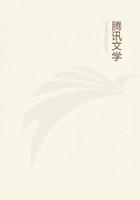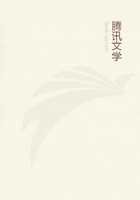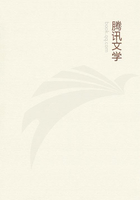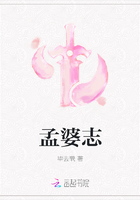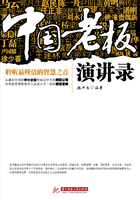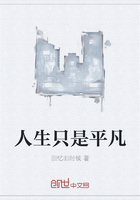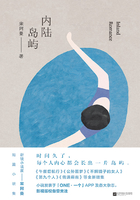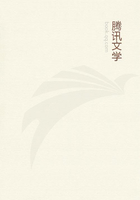A single instance must suffice to indicate both the difficulty and the significance of many of those questions of Chaucerian biography which, whether interesting or not in themselves, have to be determined before Chaucer's life can be written. They are not "all and some" mere antiquarians' puzzles, of interest only to those who have leisure and inclination for microscopic enquiries. So with the point immediately in view. It has been said with much force that Tyrwhitt, whose services to the study of Chaucer remain uneclipsed by those of any other scholar, would have composed a quite different biography of the poet, had he not been confounded by the formerly (and here and there still) accepted date of Chaucer's birth, the year 1328. For the correctness of this date Tyrwhitt "supposed" the poet's tombstone in Westminster Abbey to be the voucher; but the slab placed on a pillar near his grave (it is said at the desire of Caxton), appears to have merely borne a Latin inscription without any dates; and the marble monument erected in its stead "in the name of the Muses" by Nicolas Brigham in 1556, while giving October 25th, 1400, as the day of Chaucer's death, makes no mention either of the date of his birth or of the number of years to which he attained, and, indeed, promises no more information than it gives. That Chaucer's contemporary, the poet Gower, should have referred to him in the year 1392 as "now in his days old," is at best a very vague sort of testimony, more especially as it is by mere conjecture that the year of Gower's own birth is placed as far back as 1320. Still less weight can be attached to the circumstance that another poet, Occleve, who clearly regarded himself as the disciple of one by many years his senior, in accordance with the common phraseology of his (and, indeed, of other) times, spoke of the older writer as his "father" and "father reverent." In a coloured portrait carefully painted from memory by Occleve on the margin of a manuscript, Chaucer is represented with grey hair and beard; but this could not of itself be taken to contradict the supposition that he died about the age of sixty. And Leland's assertion that Chaucer attained to old age self-evidently rests on tradition only; for Leland was born more than a century after Chaucer died. Nothing occurring in any of Chaucer's own works of undisputed genuineness throws any real light on the subject. His poem, the "House of Fame," has been variously dated; but at any period of his manhood he might have said, as he says there, that he was "too old" to learn astronomy, and preferred to take his science on faith. In the curious lines called "L'Envoy de Chaucer a Scogan," the poet, while blaming his friend for his want of perseverance in a love-suit, classes himself among "them that be hoar and round of shape," and speaks of himself and his Muse as out of date and rusty. But there seems no sufficient reason for removing the date of the composition of these lines to an earlier year than 1393; and poets as well as other men since Chaucer have spoken of themselves as old and obsolete at fifty. A similar remark might be made concerning the reference to the poet's old age "which dulleth him in his spirit," in the "Complaint of Venus," generally ascribed to the last decennium of Chaucer's life. If we reject the evidence of a further passage, in the "Cuckoo and the Nightingale," a poem of disputed genuineness, we accordingly arrive at the conclusion that there is no reason for demurring to the only direct external evidence in existence as to the date of Chaucer's birth. At a famous trial of a cause of chivalry held at Westminster in 1386, Chaucer, who had gone through part of a campaign with one of the litigants, appeared as a witness; and on this occasion his age was, doubtless on his own deposition, recorded as that of a man "of forty years and upwards," who had borne arms for twenty-seven years. A careful enquiry into the accuracy of the record as to the ages of the numerous other witnesses at the same trial has established it in an overwhelming majority of instances; and it is absurd gratuitously to charge Chaucer with having understated his age from motives of vanity.
The conclusion, therefore, seems to remain unshaken, that he was born about the year 1340, or some time between that year and 1345.
Now, we possess a charming poem by Chaucer called the "Assembly of Fowls,"elaborately courtly in its conception, and in its execution giving proofs of Italian reading on the part of its author, as well as of a ripe humour such as is rarely an accompaniment of extreme youth. This poem has been thought by earlier commentators to allegorise an event known to have happened in 1358, by later critics another which occurred in 1364.
Clearly, the assumption that the period from 1340 to 1345 includes the date of Chaucer's birth, suffices of itself to stamp the one of these conjectures as untenable, and the other as improbable, and (when the style of the poem and treatment of its subject are taken into account) adds weight to the other reasons in favour of the date 1381 for the poem in question. Thus, backwards and forwards, the disputed points in Chaucer's biography and the question of his works are affected by one another.
Chaucer's life, then, spans rather more than the latter half of the fourteenth century, the last year of which was indisputably the year of his death. In other words, it covers rather more than the interval between the most glorious epoch of Edward III's reign--for Crecy was fought in 1346--and the downfall, in 1399, of his unfortunate successor Richard II.

